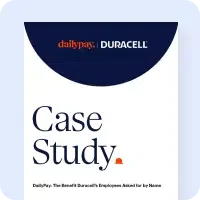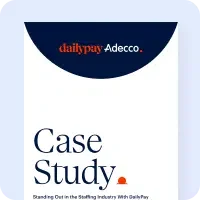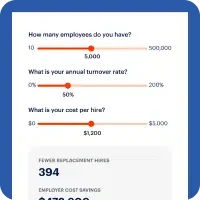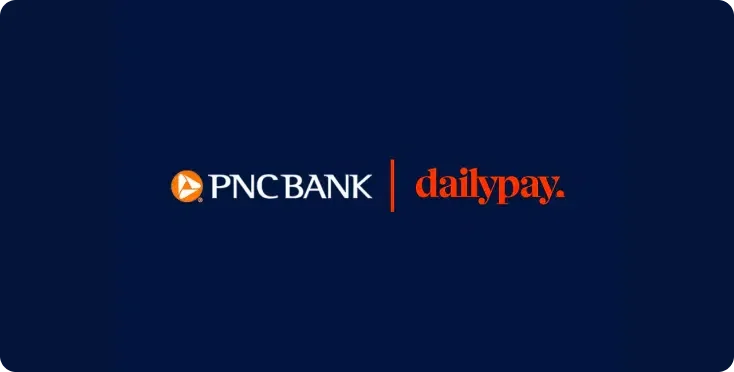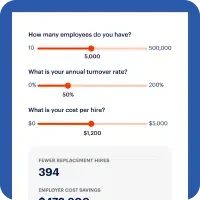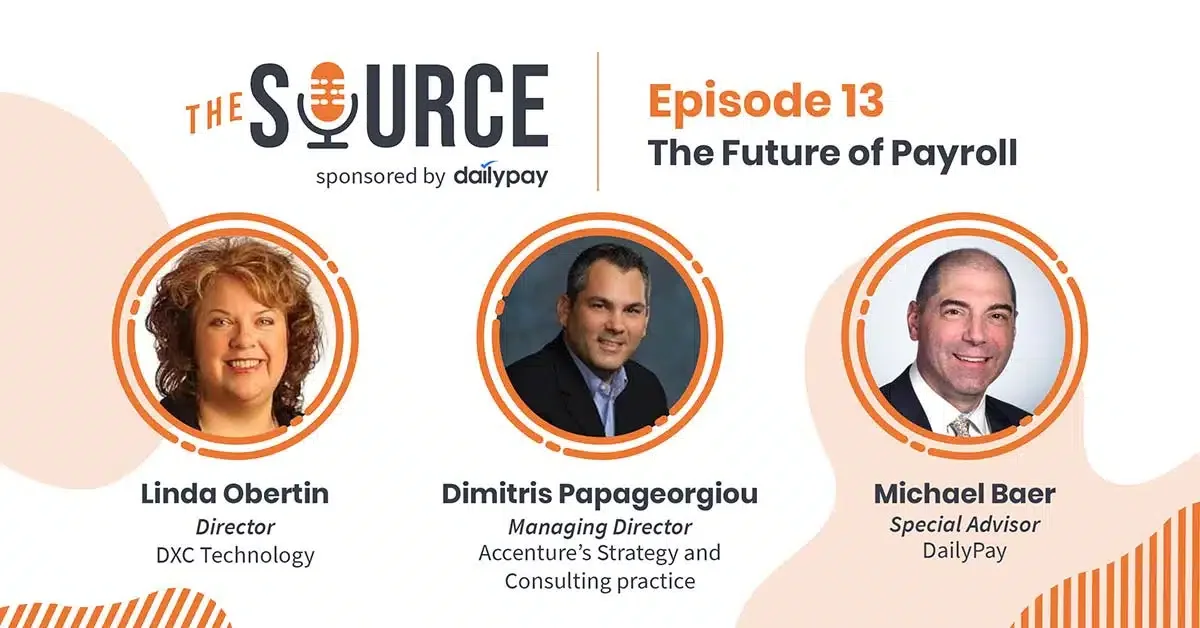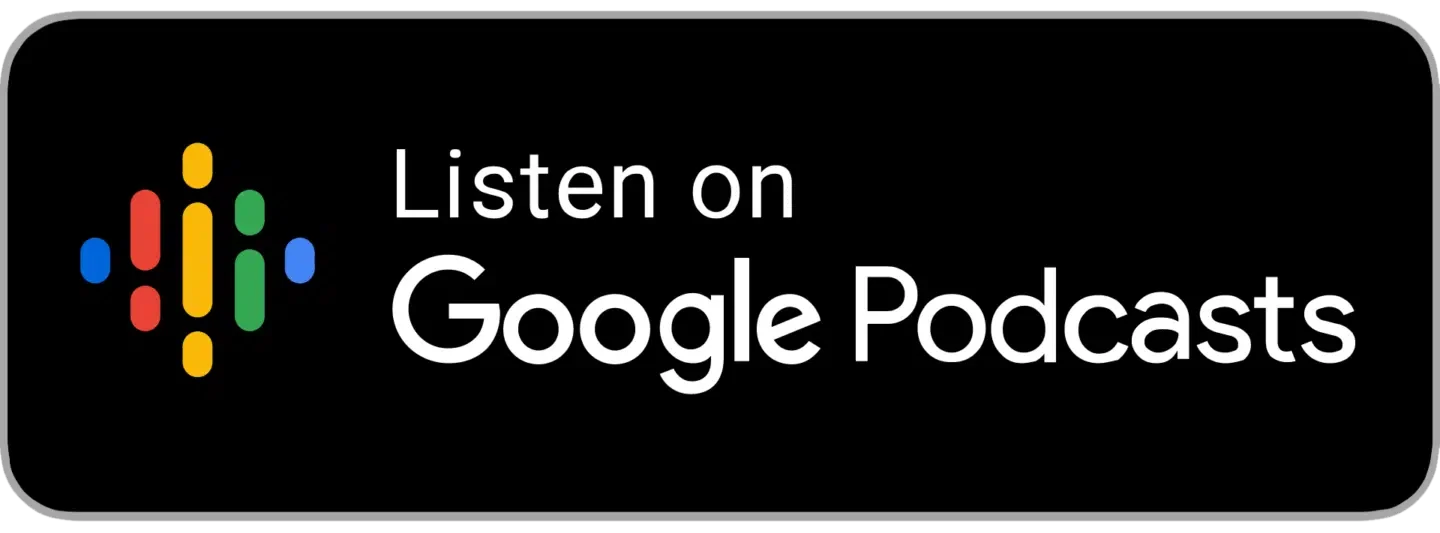Several technological advancements are being applied to payroll processes almost at the same time. What key solutions are being adopted, and how will these impact the future of payroll operations? Payroll’s role in organizations also is becoming more strategic as updated processes and approaches to workforce management take hold. How will this impact current and future payroll professionals? Esteemed guests Dimitris Papageorgio, from Accenture, and former American Payroll Association President Linda Obertin, CPP will shed light on what the future holds for payroll operations and the professionals who work in that capacity.
About Our Speakers
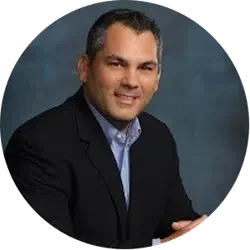
Dimitris Papageorgiou is a Managing Director within Accenture’s Strategy and Consulting practice, focusing on HR Transformation and Business Value realization. He has more than 20 years of experience, of which nine were spent in consulting as a Partner in EY’s People Advisory Services, assisting clients to select and deploy global HCM and Payroll solutions. His experience includes Service Delivery and Operating model development, solution architecture, deployment, support and training. Dimitris’ experience spans industry and consulting, with strong subject matter expertise in HR operations and business enablement through Shared Services and outsourcing.

Linda Obertin currently serves as Director, Shared Services at DXC Technology overseeing Global HR and Payroll Services for 70 countries. Prior to joining DXC, Linda held leadership positions in the Finance and Human Resources divisions of Fortune 100 corporations. She has more than 25 years of in-depth Global Human Resource, Workforce Administration, Contingent Workforce and Payroll shared service experience, servicing populations of 300,000+. She also held senior leadership roles in the service industry, Human Resource Business Process Outsourcing (BPO), responsible for Implementation, Operations, Process Excellence and Service Delivery optimization for large clients.
Linda is an educator for the American Payroll Association and Global Payroll Management Institute where she shares thought leadership expertise. She serves as a Director on the American Payroll Association Board and is a past APA President.
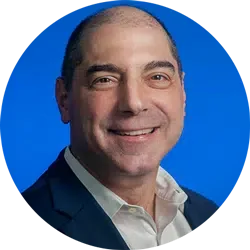
Michael Baer is the host and executive producer of The Source podcast. Michael previously oversaw domestic and international payroll news and analysis at Bloomberg Tax, previously BNA.
In a career spanning three decades, Michael transformed the role of managing editor, becoming an information services leader who managed every aspect of world-class global products and platforms, while continuously increasing revenue and achieving market-best customer satisfaction. He directed a team of editors and writers who were charged with translating complicated tax and labor laws into English so non-lawyers could easily understand and apply them, and was integral in organizing and placing that content on easy-to-access web platforms, resulting in the highest net promoter scores the company had seen for any of their offerings.
Michael has been a frequent public speaker for conferences and webinars, and now is the host of The Source, sponsored by DailyPay. Michael joined the DailyPay team in 2019.
.
In this podcast you will learn about…
- The latest in payroll technology and employee data-management capabilities
- The likelihood that these advancements will be widely adopted
- Ways in which payroll’s role in employer organizations has changed
- Skills required for payroll professionals to succeed in their roles
About this podcast and transcript:
Welcome to The Source, the definitive destination for timely and informative regulatory updates and issues in the on-demand pay industry.
The Source is brought to you by DailyPay the industry-leading provider of the DailyPay benefit and pay experience.
This material is for general information only, and the views expressed here in reflect only the views of the participants. This program should be considered marketing material and should not be relied on as legal, tax, accounting, or regulatory advice.
And now let’s welcome our host, Michael Baer.
Michael Baer:
Hello, everyone. And welcome to The Source. The Source is sponsored by DailyPay and provides insights into active and upcoming legislation impacting the on-demand pay industry. And with special guests, we help clarify issues surrounding early access to pay and the pay experience. And today we welcome two special guests who will provide us insight into how payroll processes have and will change with technological advancements and how payroll departments and payroll professionals will face these future challenges.
Michael Baer:
Dimitris Papageorgiou has for several years now led an effort to educate payroll professionals in understanding great technological changes and how they are and will impact the payroll function. As managing director with Accenture’s strategy and consulting practice. He focuses on HR transformation and business value realization. And this follows after several years as a partner in Ernst & Young people advisory services. Welcome, Dimitris.
Dimitris P:
Pleasure to be here.
Michael Baer:
And our second guest is Linda Obertin, CPP. She has served fortune 100 firms and has given back to the payroll community over her career. She is the director of shared services at DXC Technology and oversees global HR and payroll services for 70 countries. Linda also is an educator for the American Payroll Association and a Global Payroll Management Institute where she shares thought leadership expertise. She serves as a director on the American Apparel Associations board of directors, and is a past APA president. Welcome Linda.
Linda Obertin:
Thanks, Mike. It’s a pleasure to be here. I appreciate the opportunity.
Michael Baer:
Well, let’s get started then. So, Dimitris, I can count out on my hand kind of four major advancements impacting payroll now, artificial intelligence and robotics or robotic process automation, blockchain, and the technology driving on-demand pay. These all have been kind of on the surface of visibility in terms of game changes for payroll. But I know Dimitris and we talked earlier, you have a few other additions to this less than possibly some groupings that we need to understand about these new technologies that are impacting payroll right now. So could you explain somewhat about how these technologies, not just these four, but the others that you had mentioned to me earlier are going to impact payroll?
Dimitris P:
Absolutely. The first topic I think that I want to touch upon is the increase of the on-demand pay, the requests that we are seeing now in the market of individuals that want to have to decouple their ability to receive wages from the pay date and be able to receive pay more frequently. And I think in order to be able to do that, which is now a significant demand from the workforce, we need slightly different tools that are being provided in the space of intelligent automation, which is comprised by RPA, blockchain, machine learning, natural language processing and other tools. In addition to the progression, I would say of the wearable devices such as RFID and geo-fencing that we can start tracking passively activities and time spend at work versus having to attest through a time-punch machine or some other means that we have to communicate.
Michael Baer:
So could you explain the acronym RFID for those that might not be that familiar with that?
Dimitris P:
So the easiest way, because I don’t think anybody wants to get the actual, it’s radio-frequency identification. But if you have ever gone through a turnstile that you have to scan your ID in order to get through or have been in a space that it actually records your attendance like the APA sessions in Congress, then you will know that this is RFID technology that powers that.
Michael Baer:
Okay, thank you very much. So moving on from this kind of list of technology game changers, so we’ve established these are the larger influences of payroll process change on the technology side, but there are phases of adoption for each of these. So where would you say we are now in 2021 with each one of these and which ones do you think will be in the general acceptance or in other words, incorporated into normal procedures soonest?
Dimitris P:
I think robotic process automation and AI are leading the charge from an intelligent automation perspective. But from an adoption and benefits realization perspective, I would say that neither of the two has yet enjoyed broad-based acceptance. And the reason being is both technologies require to operate within an environment that it has quality data and repeatable processes. And in order to do so, most organizations have to do some preparatory work to make their environments RPA and AI-friendly.
Dimitris P:
So I would say those two technologies are probably the ones that are most often heard. From impact perspective, I believe blockchain is going to be the most disruptive protocol, because it’s a protocol actually. It’s going to change the way we interact with data and the custody of data. We are going to see that we’re going to move a lot of the ownership of data quality and data integrity to the owners of data versus the companies. And once that becomes a little more broadly accepted, which is happening currently with the adoption of cryptocurrency by many, and we are seeing that the regulatory environment is also beginning to incorporate cryptocurrency thinking in its design. Once that becomes a little more acceptable, I would say that blockchain is going to be the single most impactful disruption in our space.
Michael Baer:
Okay. But in terms of kind of where we’re at now, I have proposed that the adoption of say on-demand pay processes has kind of moved or is very close to moving to the general acceptance category. Am I hearing from you that these other processes and these other technologies are still in kind of the early adoption phase?
Dimitris P:
I would agree that the on-demand pay is probably the most mature from the trends that we are seeing out there. It started from retail and catering-type of organizations, food-catering-type organizations, where they had the individuals with lower earnings that needed faster access to them, but it has become much more mainstream in our days, so many companies are actually now incorporating this as part of their strategy. So much broader adoption that to your point, RPA and AI have probably can be seen at least in 50% of the organizations, at least, in the U.S., but not to the level of adoption that you would expect for them to given that they are now the houses that have been around for four to five years. And I think part of the reason why they have not enjoyed as widespread success, and I would say proliferation is primarily because of the way that they have been approached, which is often a single technology that was meant to do something truly magical over promised, under delivered and thereby abandoned.
Michael Baer:
Okay. And then the blockchain, which you said is going to be super disruptive is kind of falling behind those two. So what we’re saying is on-demand pay is kind of moving into that general acceptance category, RPA and AI may be a four to five years, but part of that is because of this maybe some over promising and what the results could be in the application of that technology. And then there’s blockchain, which probably will suffer from the similar kind of over promising and the high expectations in what it can do that follows, am I right?
Dimitris P:
You are. I think blockchain in some interesting way is actually contradicting what we’re trying to do with AI and RPA. AI, RPA are trying to cater to inefficiency that exists in organizations. So eliminating transactional work or menial work or work that can be done at a better price point. Whereas blockchain is actually going to change the transaction itself, it is not going to take that transaction and make it faster or lower cost, it is completely going to change the way we think about debits and credits and custody of data.
Michael Baer:
So I guess, what I’m hearing from you Dimitris then is that the technology being developed for these kind of transactional advancements for using AI and robotic process automation are kind of running a parallel course with the development of blockchain and eventually blockchain will be so efficient or so transformative that those technologies being built for these other two are going to kind of go by the wayside as kind of like the Betamax, maybe?
Dimitris P:
I hope that nobody shows me this video in seven years from today and says you were very far off from what you’re saying. But my belief is that once blockchain technology matures, a lot of the technology that we utilize today, including in some cases ACM may not be needed in its present format or present utility.
Michael Baer:
Well, that is incredible there, Dimitris. That’s an incredible perspective that you bring and major, major impact on payroll’s future for sure. Let’s move on here. Speaking of the future, Linda, how is this all playing out? You’re kind of on the ground in the payroll community as a whole. You and I remember that just even 10 to 15 years ago, as processes really started automating and the whole concept of human-capital management really took hope. There was this idea that the automation and advances in employee data management technology and the approaches at the time, they could kind of squeeze the payroll profession out. There was this thought that the role of payroll in an organization could change that dramatically. But now we’re here in 2021, payroll’s role seems to actually have expanded and not diminished, wouldn’t you say?
Linda Obertin:
You’re exactly right, Mike, just the opposite of diminishing payroll’s will continue to expand, evolve and elevate within our organizations. The dimensions of payroll are very broad and deep. Well, data management is a critical aspect, strategy, process, ownership, service delivery, customer service, data insights, control management compliance, and I can go on and on, obviously with the list, project management are just a few of the many hats that typical payroll professional wears each and every day. In addition to managing the body of regulatory changes, the evolution of automation has elevated the profession as core services remain highly valued by all of our executives and leaders within our firms. It is still very true payroll is the reason people come to work and the relevancy of the payroll professional is even more critical today. Every executive recruiter that I connect with will share their highest demand requests, and most difficult roles to fill are sourcing and payroll and control specialist fields, it’s been on the rise. Roles which can manage complex control frameworks are on payroll and especially in global payroll today.
Michael Baer:
So this relevancy now expanded relevancy in organizations for payroll, how are we not, I say we, because I’m a payroll professional too, but by profession, how is payroll not just staying relevant in organizations but becoming even more and more critical to and strategic?
Linda Obertin:
Payroll has a plethora of data at their fingertips and within payroll and HR, there are data and insights that we can use to be predictive to identify future trends as well as support leadership and forecasting. So it’s really about taking all the valuable data mining and moving that into insights for decision-making, for manager awareness and truly opening up that agenda for leadership to be at the table. Every industry has become more automated and parallel, truly has been transformed by technology, HR, finance, shared services are all in the same category. And we’re experiencing the most significant changes today in our history, as you just heard from Dimitris and payroll needs to align and be on board with those changes as well.
Michael Baer:
Well, I think that’s fascinating, just kind of to follow on a little bit on that line of kind of explanation that you have for how payroll is staying relevant and becoming actually more relevant is something about the skill sets that… I mean, I’m starting to think do does a payroll professional in the future, they need to have those skills of being a project manager, for sure that’s always kind of been there. But what other kinds of skills beyond kind of the traditional skills that are still needed because face it, payroll still got to get the job done and get that payout and pay accurately, and that’s the most critical role of payroll right now.
Michael Baer:
But beyond that, that basic so much has changed all around it, that ability to use the data, like you said. You’ve been at the high levels of some of these major corporations and it’s not always clearly kind of a payroll role that gets you up there, but I think it really was for you wink, wink, then that was kind of groundbreaking for someone so steeped in payroll to be able to get these opportunities. But I know the ceiling is kind of still there, but how has the ability to achieve such career success through the payroll trek changed in this new dynamic environment? That’s what I’m trying to get to. How do you see the future of payroll within an organization?
Linda Obertin:
Well, my career journey began as a single-person payroll benefits administrator. So I began very humbly actually for a small nursing home in Bloomington, Minnesota, where my payroll was only 300 employees. And as I think back on my experience, and also now compared to the future, technology has truly leveled the playing field. As we think of our capabilities coming into our industry today, technology has to be one of the core skills, critical thinking is also key. There are always the fundamentals and the fundamentals around some of the baselines for accounting, for control management. But as we’re thinking of our industry today, we really need to be focused on how technology is evolving our services. And it’s really focused now on the experience. And the experience for employees are being delivered through onboarding, offboarding, course-life event management, and support such as individuals who may have a new baby adding them to their medical plan.
Linda Obertin:
Our work location change, especially for everyone working from home. It’s really about the experience and the role that payroll plays in that experience. Payroll and the management of data and information is really now a baseline expectation. Our employers expect us to have high-quality payroll delivery timeliness, and it’s really about how we connect with the partners in the organization to deliver the experience. So as I think about the skills, as I mentioned early on, it’s also about the critical thinking and the process engineering from an end-to-end perspective. We have to be more nimble each and every day, we have to understand how we are optimizing data. We have to build strong relationships. We have to be on top of all the changes and integrating the changes into our systems, into our policies and programs. And so our role has changed from being more transactional, as Dimitris has mentioned to being more strategic, having a vision, having a plan and executing and being able to measure success, really, really key skills and strengths for our payroll teams and especially for our payroll leaders.
Linda Obertin:
I’ve been very fortunate that when a new opportunity is presented, I have a tendency to say yes, and that new challenge will continue to open up a new door so I gain a new experience and I continue to grow in my career. Adding new skills and experiences is key for anyone entering the industry every day. And as we work within finance or HR, or within shared services, we have to be very flexible. We have to understand that change is also a daily experience and we have to be resilient and really be a leader through change. I’ve been very fortunate as well to have experiences with the assignments. Global payroll truly has taken me around the world literally and figuratively as I’ve had short term assignments in France and Spain and China, and have had the experience of understanding the business at the ground level and then also the richness of the cultural experience.
Linda Obertin:
So as we’re going in our careers, it’s also understanding diversity, ensuring that we have a diverse team to bring again various thoughts and experience to the organization. And at the end of the day, effective management of a payroll or shared service organization is truly like running a small business. Actually, some of the payroll organizations that I’ve run are 80% larger than many of the companies in the U.S. And so when you think of all of the attributes that you need to be successful, it’s a pretty large circle of critical skills. And then based on where you’re taking your career, you want to really hone those skills. And Dimitris has mentioned how technology will continue to provide opportunities. There are many roles today that, A, may not exist in the future, but also, B, on a positive note there are many new roles that will exist that are not present today.
Linda Obertin:
In fact, even the title of global payroll leader is relatively new, and actually seven years ago, just a few individuals had that title of global payroll leader. Today in many of my roles, I have transformation. So transformation is part of the title. Yes, individuals are working on payroll, but they’re also working to transform. And so it’s very important to be very open-minded because again, that’s how we continue to support our organizations, continue to add high-value services. And it is that resiliency, it is that opportunity to grow and be open to new experiences that will continue to drive success.
Michael Baer:
Fantastic. Before I ask you a question about new payroll professionals that are coming up, I wanted to maybe pivot to Dimitris here to talk about the global application of some of these technological advances that are going to impact and are already impacting the payroll environment and payroll processes and payroll functions. So, I mean, usually these things develop pretty unevenly across the scope of the globe. I don’t want to put you on the spot, but I did want to ask if you have kind of any measure of where some of these, we talked about adoption and general acceptance of certain technologies is United States is are we the most advanced in terms of adopting and developing some of these new tools or where do you think the rest of the world is in terms of coming along with adopting some of these things, Dimitris?
Dimitris P:
That was an interesting question about the U.S. comparison. But I’ll tell you the anecdotally robotic process automation is actually not a concept that started in the U.S. First company that came to market was Blue Prism, and it was in the UK, UiPath was based in Romania. And if I keep going down that path, you’ll see that there is an emerging trend developing in terms of the fact that many of those startups that are now very well-established did not start in the U.S. Reason being, I think is one, they have smaller economies to navigate in regulatory environments, and it’s easier from an adoption perspective there, although from a labor protection perspective, they are much more complex. You do have to navigate works councils and other regulatory bodies there that may be preventative to the adoption of things that could be perceived as impacting adversity, the workforce or the payroll workforce versus the general workforce.
Dimitris P:
Nonetheless, I would say the adoption started from the European continent. Primarily Asia is still lagging, but catching up fast, India, of course, being a service or innovation in many, in many ways on those emerging technologies. U.S., I would say that we are still trying to figure out whether or not we’re going to get our solutions from the main providers, the HCM cloud providers, or we’re going to go with the smaller, more nimble kind of solutions. So many clients are actually contemplating, do I implement AI or RPA, or do I wait for something that is going to come as part of my cloud installation from a workday success factors or Oracle HCM? So I think that that type of discussion is coming up very often, which has hindered to some degree adoption in the U.S.
Michael Baer:
Okay. So there’s still some uncertainty, and I think in terms of in the U.S. and that might be holding us back a little bit, is that kind of what I’m hearing. And in terms of paths to go by, but organizations are still figuring that out?
Dimitris P:
Indeed. I think there’s still a little bit of hesitation to jump right into the fray of all the emerging tools. To some degree, I think also we have to take into consideration that we do have presently every session economy and many organizations had engaged in cost cutting activities, we got the pandemic on top of that. So it has definitely pushed us to think in different ways and those different ways I believe will materialize within the next 12 to 18 months.
Michael Baer:
Okay. Well, thanks for that perspective. I appreciate your answer in that. For us here, let’s move back to Linda and talk about in this whole context of, of everything that’s been happening. These new payroll professionals that are coming up, the folks that you are helping to educate what kind of skillset changes are you seeing in them? What do they need to know to reach these higher levels in an organization and to keep payroll a critical function, not just a tactical one, but strategic?
Linda Obertin:
I think it’s key as Dimitris was mentioning, the future is all about understanding and optimizing technology, and it will be changing dramatically. I found, being a champion of change and being very open to new ways of doing business, respect what has been done in the past, but always use your lessons learned to eliminate those mistakes and improve your process. And I also just wanted to mention, to going back the first time that I joined an agile project, as we were thinking of technology, I was introduced on the first day to the scrum master. I was very confused about this new role and responsibility as it was brand new to myself and the HR payroll organization.
Michael Baer:
Talk about changes in titles and things, right?
Linda Obertin:
Exactly. And now as we look to the future to design and build our models, it still is about collaboration. Agile is all about being together, designing, ensuring all of the activities are completed with, again, that holistic view, bringing product, bringing business, bringing operations and everyone together. So critical thinking is also really primary for individuals coming into the profession, relationship building, as I’ve mentioned.
Linda Obertin:
And then also we still have a core function of customer service, so empathy ensuring that we can service our customers. But also we have that control-management background, so compliance regulatory scrutiny is still high in the skillsets. And as individuals, really think about what they want to do, it’ll be important to help them think about what is that future direction. And I’ve been very fortunate in the past where I’ve been able to actually draft my own position description. And I’m looking forward in 5 to 10 years, as I mentioned, transformation is in many of the titles today, what the new titles of the future will be?
Linda Obertin:
Because as we think about servicing and experiences and onboarding and offboarding payroll is still an important discipline and aspect of all those services, but we still need to always think about what’s about the broader aspect of servicing the organization. So that our worked is really no longer that of a solo artist, perhaps that it has been in the past playing just one role. We’re now part of the orchestra, as I like to say, in the overall delivery of services. Our ecosystems are much broader connected to the core business and business leaders than ever before. We need to understand the impacts of all inputs and downstream outputs on our processes and services. So understanding that full end to end, that holistic view, not just a small piece of the process. Again, thinking of the employee as a consumer of our services is also critical for our organizations as the expectations of our consumers are also changing each and every day of our employees.
Linda Obertin:
And then again, that agility to navigate the regulatory changes. I think COVID is one of those situations where all organizations quickly needed to pivot. We needed to pivot on the experience, we pivoted to use more technology, to be digital. We also pivoted to begin to understand how do we all work from home? And how do we still maintain brand management, employee commitment and engagement? And we’re all working then at each and every day, it leveled the playing field I think for all of us, but at the core payroll was still in one of the key relevant services.
Linda Obertin:
And so the relevancy of our profession in supporting our firms just continues to grow exponentially from my perspective. And anyone who joins the profession, it’s still a very challenging profession, it evolves and changes each and every day, and that’s why I love it. There’s a new problem to solve today and tomorrow. And it will look much different as Dimitris has mentioned. And so the paradigm is changing. So I think that’s actually the word of advice is that don’t get too used to what we’re doing today because it will look much different tomorrow.
Michael Baer:
So don’t really try to stay in a comfort zone, maybe get uncomfortable. And I love your mentioned about being a part of this whole orchestra, but I think payroll was got to be first chair of something, right?
Linda Obertin:
Yes, always the first chair. Yes.
Michael Baer:
Thank you.
Linda Obertin:
You have to rise to that occasion. I always have our teams that I work with, I have a theory that there are three types of really employees in the organization. There are those who are our drivers, they’re driving the mission, they’re driving the vision, they’re showing up every day with our leadership hat, everyday leadership, regardless of the type of contributor you are in the organization. There are some that are always waiting, waiting to see what’s going to happen. I would say waiting by the bus stop, they’re waiting to just say, if the bus will come and pick them up, so they haven’t quite embraced the change, but they’re waiting for someone else to do so. And then the third category are those again who are left behind because the bus is moving forward, we’re driving to the future and they just haven’t been comfortable to join the journey, and it is a journey each and every day. And I always promote anyone coming into the organization, you’re much more comfortable when you’re driving the bus sometimes when you’re riding the bus, but you don’t want to get left behind.
Michael Baer:
Okay. Well, thank you, Linda for that. And Dimitris, I just want to give you another opportunity here. You’ve already mentioned previously about how transformational technology has been in terms of moving the role of payroll from a transactional kind of operation into a more strategic role. What do you see for the future role of payroll? And we know how it’s changed, how will it continue to change in the future? Do you have any thoughts on that?
Dimitris P:
I have many thoughts. What I will share is that in my view, the payroll professional has become much more of a technologist that it used to be. We’re now much more aware of integrations, downtime of systems, data configuration in order to make systems communicate and collaborate better, which probably 10, 15 years ago, you would expect somebody in the HR yes world to be doing on your behalf. So I would say most payroll professionals have evolved to be technologists. We’ve always had analytical, as part of our DNA, we needed to be analytical for the day to day activities. But that analytical nature now lends itself to the insights that can be derived by payroll.
Dimitris P:
And that’s where I think we need to start shifting our mind that payroll is not a matter of paying every day the accurate amount, but you’re actually a representative function that touches every employee in the organization every week, every month, every year. It is actually the global common denominator in every organization, and it’s a wealth of information and a huge expense for most organizations. If you look at the SGNA line in the income statement of any organization, you’ll see that payroll probably represents anywhere between 20% to 25% of their expenses. So if you’re a quarter of a company’s cost, you surely need to start thinking of that you’re part of the strategic planning versus a transactional activity.
Michael Baer:
Well. Dimitris, thank you so much. I think that’s the last word and I want to thank you both so much for this extremely illuminating discussion. Linda, Dimitris. Thank you again.
Dimitris P:
Thank you.
Linda Obertin:
Thank you. Appreciate that opportunity.

